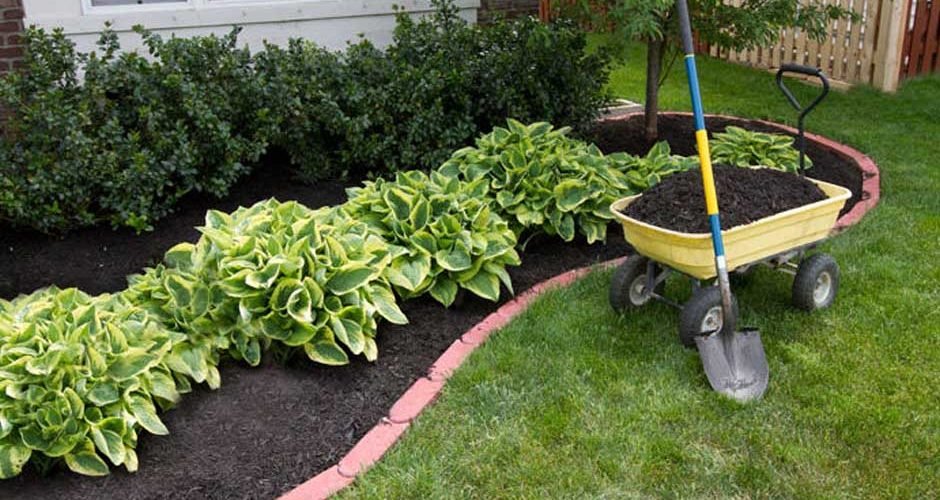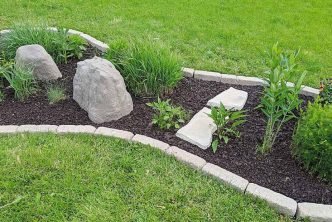When it comes to maintaining a healthy and thriving garden, using mulch can be a game-changer. Mulching is the practice of covering the soil surface with a layer of organic or inorganic material. It offers numerous benefits, including conserving moisture, suppressing weeds, moderating soil temperature, preventing soil erosion, and improving soil fertility. In this in-depth article, we will explore the various types of mulch, the benefits they provide, how to apply them effectively, and considerations for selecting the right mulch for your garden.
Table of Contents
Types of Mulch
Organic Mulch
Organic mulches, derived from plant materials, offer a range of benefits. Examples include:
Wood Chips
Made from tree branches, wood chips are popular for their durability and ability to enrich the soil as they break down slowly over time.
Straw
Straw is commonly used for vegetable gardens and provides excellent weed suppression and moisture retention.
Leaves
Shredded leaves make an ideal mulch choice, as they add nutrients to the soil as they decompose.
Compost
Compost serves as a mulch and soil amendment, providing both weed control and valuable nutrients for plants.
Inorganic Mulch
Inorganic mulches, such as plastic, rubber, or gravel, offer long-lasting weed suppression and moisture retention. However, they do not add organic matter to the soil.
Benefits of Mulching
Moisture Conservation
One of the primary benefits of mulching is its ability to conserve moisture in the soil. By covering the soil surface, mulch reduces evaporation, minimizing water loss and helping to maintain consistent soil moisture levels. This is especially important during hot and dry periods.
Weed Suppression
Mulch acts as a natural barrier, preventing weed seeds from germinating and growing. A thick layer of mulch suffocates existing weeds, reducing the need for hand weeding or chemical herbicides.
Soil Temperature Regulation
Mulch acts as an insulating layer, moderating soil temperatures by keeping the soil cooler in hot weather and providing insulation during colder seasons. This temperature moderation promotes healthier root growth and protects sensitive plants from extreme temperature fluctuations.
Soil Erosion Prevention
Mulch helps prevent soil erosion caused by wind and water runoff. By creating a protective layer over the soil, it allows rainwater to infiltrate gradually, reducing the risk of erosion and nutrient loss.
Improved Soil Fertility
Organic mulches gradually break down and decompose, enriching the soil with organic matter. As the mulch decomposes, it releases nutrients into the soil, enhancing soil fertility and supporting healthy plant growth.
Applying Mulch Effectively
Preparation
Before mulching, prepare the area by removing weeds and debris. It is also recommended to water the soil thoroughly. And if you’re worried about animals getting into your plants, you can always try a raised garden bed with fence.
Depth
Apply mulch to a depth of 2-4 inches (5-10 cm). Avoid piling mulch against the stems or trunks of plants, as this can lead to moisture retention and potential rot.
Mulch-Free Space
Leave a mulch-free space around the base of plants to prevent excess moisture buildup and discourage pests or diseases from reaching the stems.
Mulch Renewal
Over time, organic mulches break down and lose their effectiveness. Renew the mulch layer annually or as needed to maintain the desired depth and benefits.
Selecting the Right Mulch
Plant Needs
Consider the specific needs of your plants. Some prefer acidic soil, so pine needles or oak leaves would be suitable choices, while others may thrive in a more alkaline environment.
Aesthetic Appeal
Select mulches that complement the overall appearance of your garden. Consider the color, texture, and visual impact of the mulch material.
Availability and Cost
Take into account the availability and cost of different mulch options. Local sources may offer cost-effective choices, such as wood chips or shredded leaves, while specialty mulches may be pricier.
Sustainability
Choose mulches that align with sustainable gardening practices. Opt for organic mulches that are renewable, biodegradable, and promote long-term soil health.
Considerations and Tips
Mulching Around Trees
When mulching around trees, create a donut-shaped ring, leaving a space around the trunk to prevent moisture buildup and potential decay.
Pest Management
Be cautious when using mulches that attract pests, such as slugs or termites. Monitor for any pest issues and take appropriate measures if needed.
Seasonal Adjustments
In regions with cold winters, consider removing excess mulch around plants in early spring to allow the soil to warm up more quickly.
Regular Maintenance
Periodically check the mulch layer for compaction or erosion. Fluff up the mulch to promote air circulation and maintain its effectiveness.
Special Considerations for Specific Gardens
Vegetable Gardens
Mulching vegetable gardens offers unique benefits. Organic mulches help retain soil moisture, reduce weed competition, and regulate soil temperature, which can enhance the overall health and productivity of the plants. However, be mindful of using mulches that may attract pests or harbor diseases. Additionally, consider using biodegradable mulch films made from materials like cornstarch or paper that can be tilled into the soil at the end of the growing season.
Flower Beds and Ornamental Gardens
Mulching flower beds and ornamental gardens can provide an attractive and uniform appearance while offering the same benefits as in other garden areas. When selecting mulch for these areas, consider the aesthetic appeal, color coordination with the plants, and the potential for the mulch to enhance the overall visual impact of the garden.
Conclusion
Using mulch in your garden is a sustainable and beneficial practice that offers a multitude of advantages. From conserving moisture and suppressing weeds to regulating soil temperature and improving soil fertility, mulching provides a wealth of benefits for plant health and garden maintenance. By selecting the appropriate type of mulch, applying it effectively, and considering plant needs and aesthetic appeal, you can harness the power of mulch to create a healthy and vibrant garden. Incorporate mulching into your gardening routine and unlock the full potential of your outdoor space.





